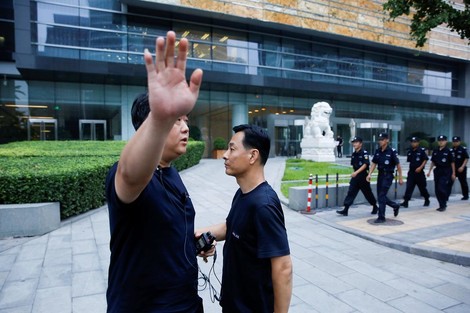Your podcast discovery platform
Curious minds select the most fascinating podcasts from around the world. Discover hand-piqd audio recommendations on your favorite topics.

piqer for: Global finds Globalization and politics
Nuala Lam is a bilingual freelance journalist with a focus on civil society, justice, and identity in China. She speaks, reads and writes Mandarin Chinese and forms her analysis of contemporary China through both English and Chinese language media. She has worked for NGOs and news media in Beijing and Shanghai and has also spent extended periods in the Chinese countryside, seeing the country's diversity and uneven development first-hand.
Her postgraduate research at the London School of Economics focussed on English-language coverage of China, investigating the translation of journalistic ethics between differing political contexts. She also holds a first class degree in Chinese and History from the School of Oriental and African Studies, University of London.
P2P Lending Crisis Sparks Pre-Emptive Crackdown In Beijing
As a China-watcher it’s not often that you find your Twitter feed flooded with images of angry protestors filling the streets of Beijing, but that’s exactly what happened earlier this month after the country’s peer-to-peer, or P2P, lending industry went into crisis. In this article Reuters journalists Shu Zhang and Elias Glenn lay out the reasons behind the crisis and document official responses to the (attempted) protests:
Peter Wang was asleep at his home in Beijing last Monday when police officers arrived before dawn to detain him, saying he had helped organize a protest planned for later that day.
Despite efforts to round up those suspected of organising protests, many did attempt to gather in the streets but were loaded onto buses bound for Jiujingzhuang, a holding centre on the outskirts of Beijing used to contain petitioners.
Large-scale public protests are relatively rare in China, and especially unwelcome in the capital. The fact that large numbers of people — no media seem to be willing to estimate exactly how many — attempted to congregate in Beijing’s financial district is a testament to the scale of the losses many experienced:
For Wang, the Beijing investor, the pain is acute. He and his family had invested 7 million yuan – their life savings, with which they had planned to buy a home at the end of the year – in two P2P platforms that have shut down.
Like Wang, many had life savings invested in the industry which, until recently, was fairly unregulated. Government attempts to bring the industry under regulation are blamed for the recent collapse of hundreds of P2P companies. Financial Times correspondent in Beijing, Yuan Yang, commented on Twitter:
Millions of Chinese families have invested in peer-to-peer lending platforms. Now billions of their renminbi have been lost, this is how Beijing is treating them—not a great sign of what's to come if more financial risks become crises.
